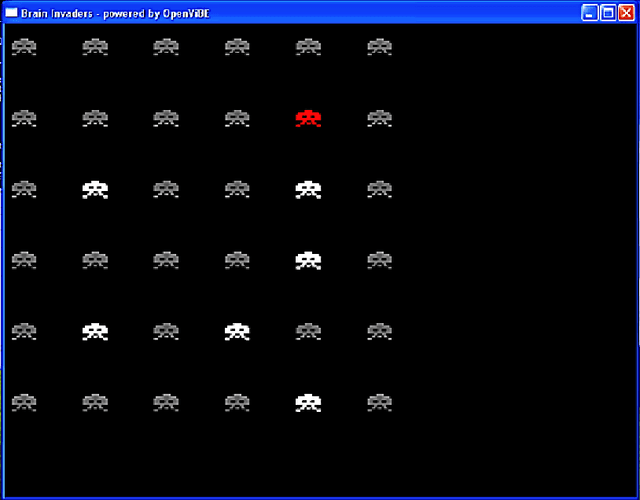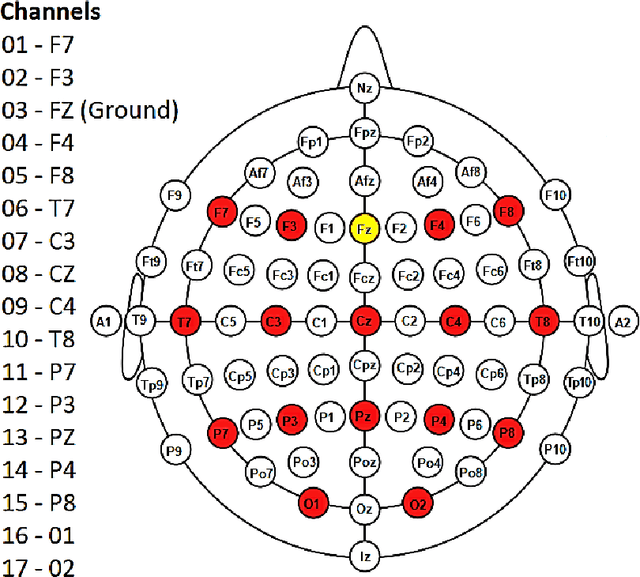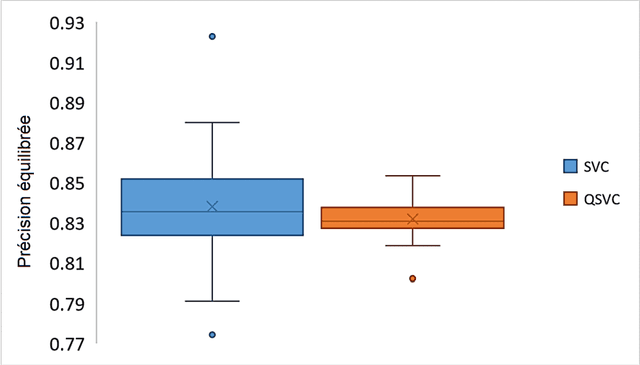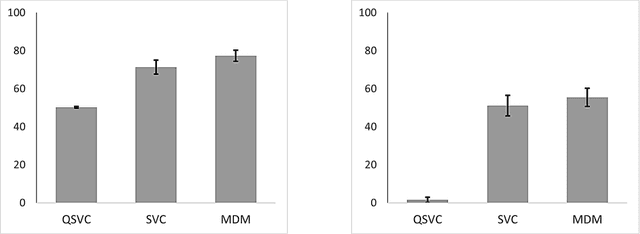First steps towards quantum machine learning applied to the classification of event-related potentials
Paper and Code
Feb 06, 2023



Low information transfer rate is a major bottleneck for brain-computer interfaces based on non-invasive electroencephalography (EEG) for clinical applications. This led to the development of more robust and accurate classifiers. In this study, we investigate the performance of quantum-enhanced support vector classifier (QSVC). Training (predicting) balanced accuracy of QSVC was 83.17 (50.25) %. This result shows that the classifier was able to learn from EEG data, but that more research is required to obtain higher predicting accuracy. This could be achieved by a better configuration of the classifier, such as increasing the number of shots.
* in French language
 Add to Chrome
Add to Chrome Add to Firefox
Add to Firefox Add to Edge
Add to Edge